In the privacy-first era, consent is the driving force that can make or break your advertising strategy. The mobile advertising industry stands at the precipice of a transformative journey toward responsible advertising: one that values user privacy and relevance over all else!
As device IDs fade into obscurity, it’s inevitable for brands to find new, effective ways to reach and engage users.
The answer is simple yet one of the bigger challenges facing marketers, building their own data.
This blog shares actionable insights on how you can build your first-party data pool to thrive in a privacy-first era.
What is first-party data?
First-party data is information collected directly from users by a business, through interactions and transactions with its own audience. And it’s data obtained with the user’s knowledge and consent!
Why first-party data?
- A direct and trusted relationship with users: A relationship based on consent and trust is the key to a long-lasting user base.
- Enhanced advertising targeting: High-quality data helps you better understand your users and target with precision.
- Accurate performance measurement: Precise insights into campaign effectiveness and customer journeys across channels.
- Future-proofed marketing strategy: Establish a resilient marketing strategy with long-term ownership of data, adapting to evolving privacy regulations.
First-party Data vs Third-party Data: A Quick Look
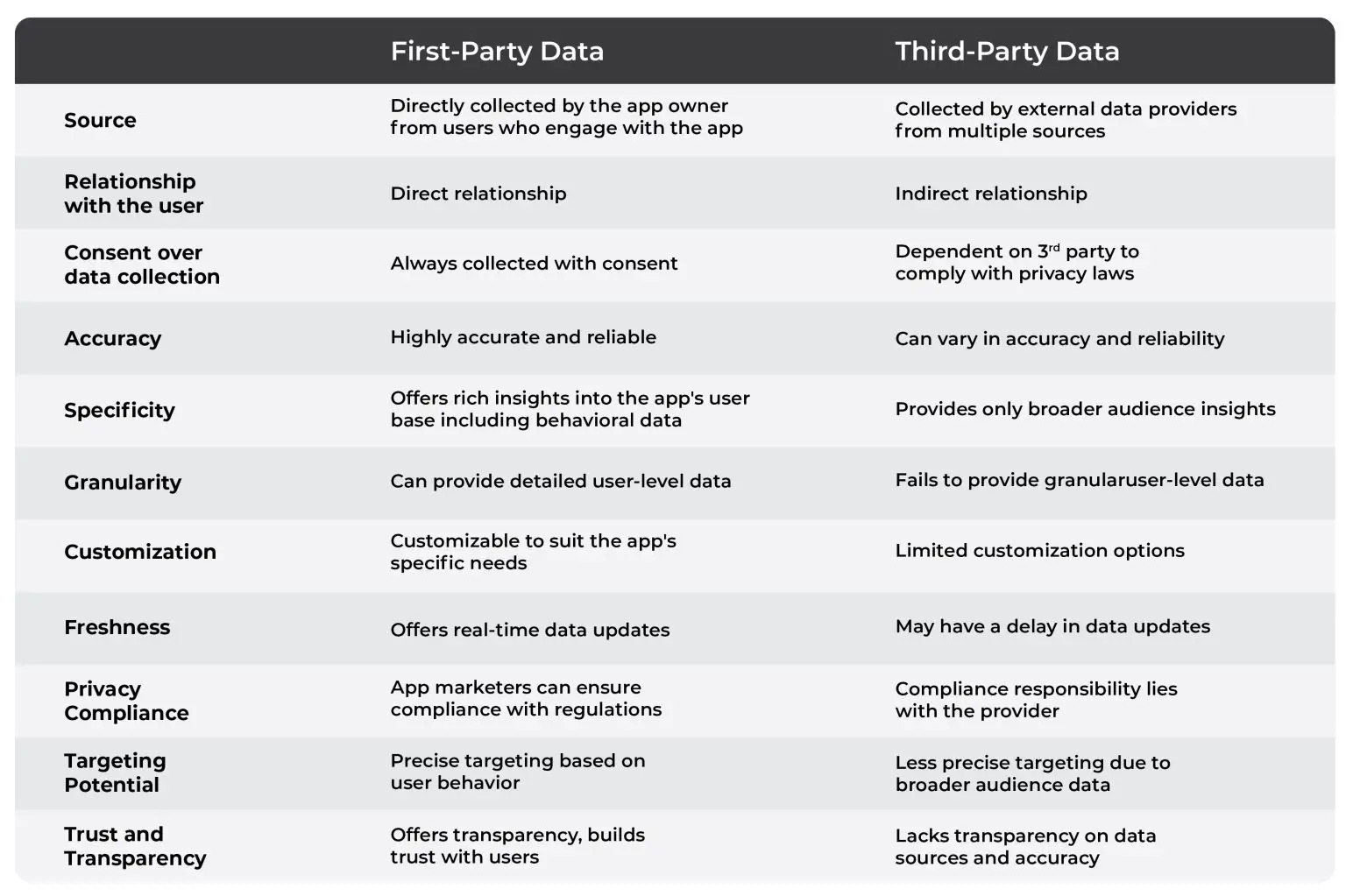
First-party Data Strategies: Unlock Value with Your First-party Data
1) Define your Data Objectives
A first-party data strategy is not a short-term fix; it’s a proactive, long-term business plan that sets the stage for success. Know what you want to achieve with the data you collect.
Ask yourself:
- What data is a must-have for your business vs nice-to-have?
- What specific use cases would it serve? (It could be to improve the user experience, personalize interactions, boost customer loyalty, or drive revenue.)
- What’s the cost of collecting this data and the projected returns?
- How can we champion user privacy through every step of the process?
This clarity will help you focus efforts on what truly matters.
2) Establish a Mutual Value Exchange
As an app marketer, you must internalize one key aspect of any brand-user dynamic: it’s a give-and-take relationship. Each data point you collect should offer a tangible value proposition to your users.
Create a win-win situation where users feel incentivized to share their data, knowing that they will receive exclusive experiences in return. This will foster a long-lasting relationship between users and your brand.
3) Communicate Clearly
Never before have people been as concerned about their privacy. Yet, it’s surprising how many brands overlook the importance of clear communication in this area.
But here’s the thing: it can make all the difference. When it comes to handling user data, make it crystal clear.
- Skip the Jargon: Explain how you collect, use, and protect their data in a simple, everyday language that everyone can understand. Let them know that you’ve got their back and that their data is safe.
- Transparency and Trust: Build trust with users by being transparent about how their data will be used, stored, and protected. Clearly communicate the security measures in place and provide reassurance that their privacy is a top priority. Explain how their data contributes to product improvements, better customer experiences, or the development of new features.
Be transparent about the benefits they can expect from sharing their data, such as personalized experiences, relevant recommendations, or exclusive offers.
When you communicate responsibly and transparently, you empower your users to make informed decisions about their privacy. And that’s a game-changer in today’s privacy-conscious world!
- Make Provisions for Better Consent Management: According to a survey by Accenture, 73% of consumers are more likely to trust a company with their personal information if it offers them the ability to control how it’s used. When it comes to consent, make it a breeze for users. Put them in the driver’s seat by providing a seamless and user-friendly experience. Offer granular choices, allowing users to customize the types of data they are comfortable sharing and the communication channels they prefer
4) Acquire Data the Right Way
The customer journey is not linear. Users go through a series of loops and twists as they interact with your app. With this in mind, identify the key touchpoints where data can be requested. For example, here are some touchpoints where data can be collected and their respective use cases. 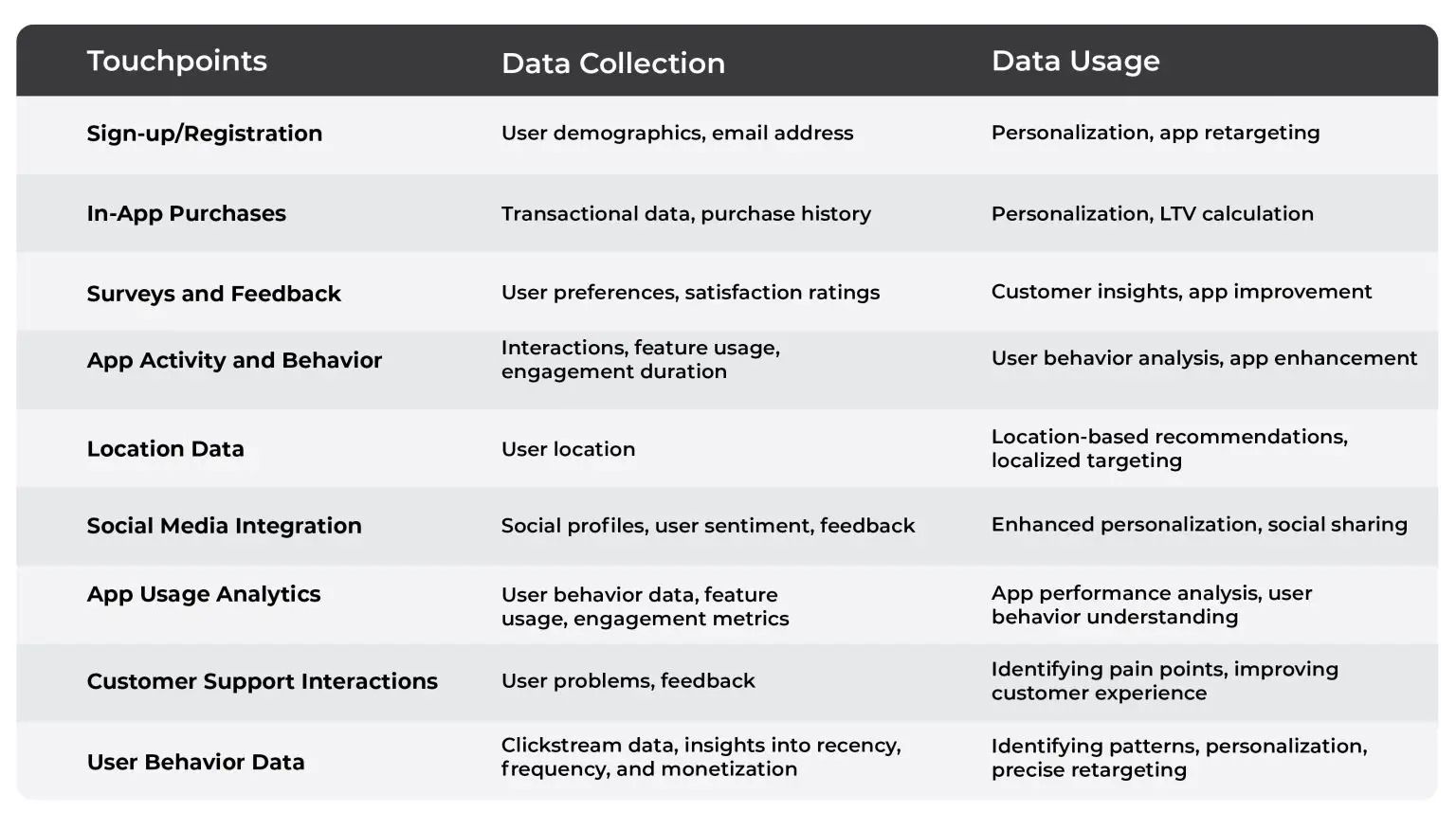
Meanwhile, do not overwhelm users by asking for too much data all at once. Consider asking for data at different stages of the customer journey, ensuring that each request is relevant and adds value to their experience.
Keep in mind: Offer tangible rewards, such as discounts, loyalty points, or exclusive benefits, to users who willingly provide their data. Create a system where users feel they are receiving something of value in return for sharing their information.
5) First-party Data Activation
As app marketers, your greatest challenge will be to constantly evaluate and uphold the standards of this data, ensuring it is a valuable asset that fuels impactful decision-making.
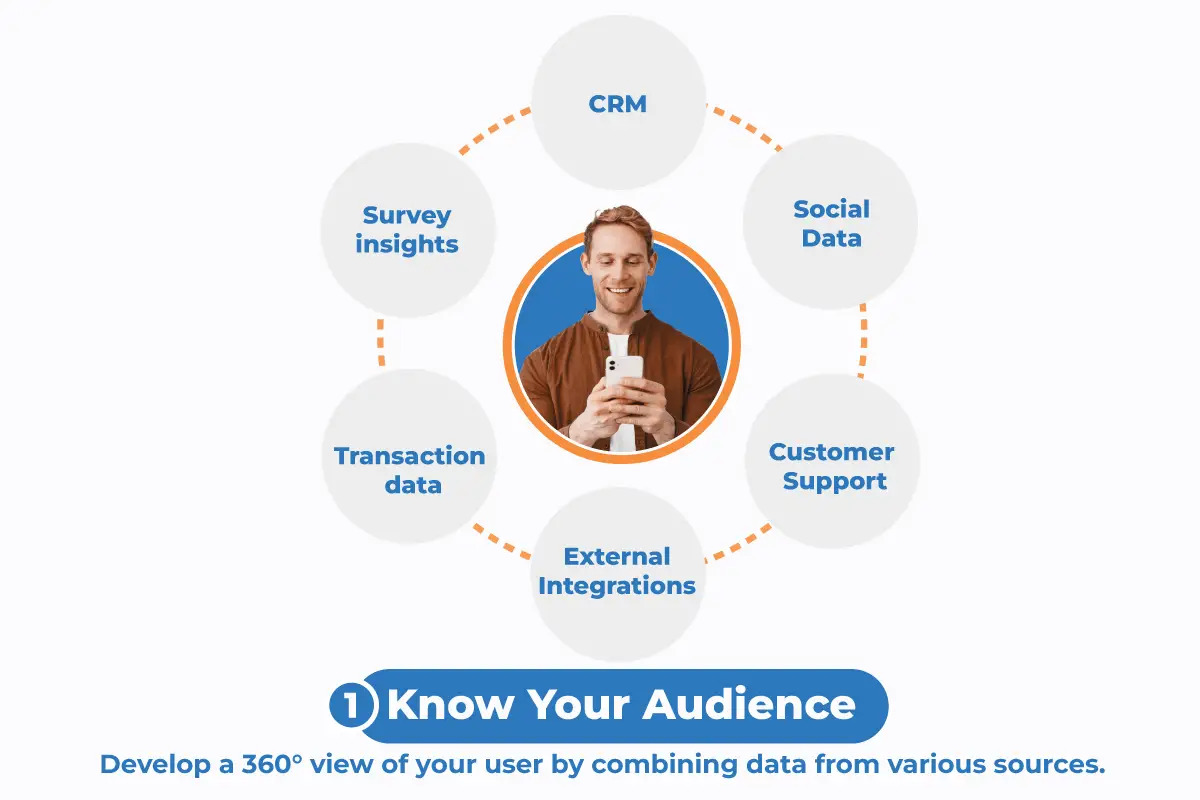
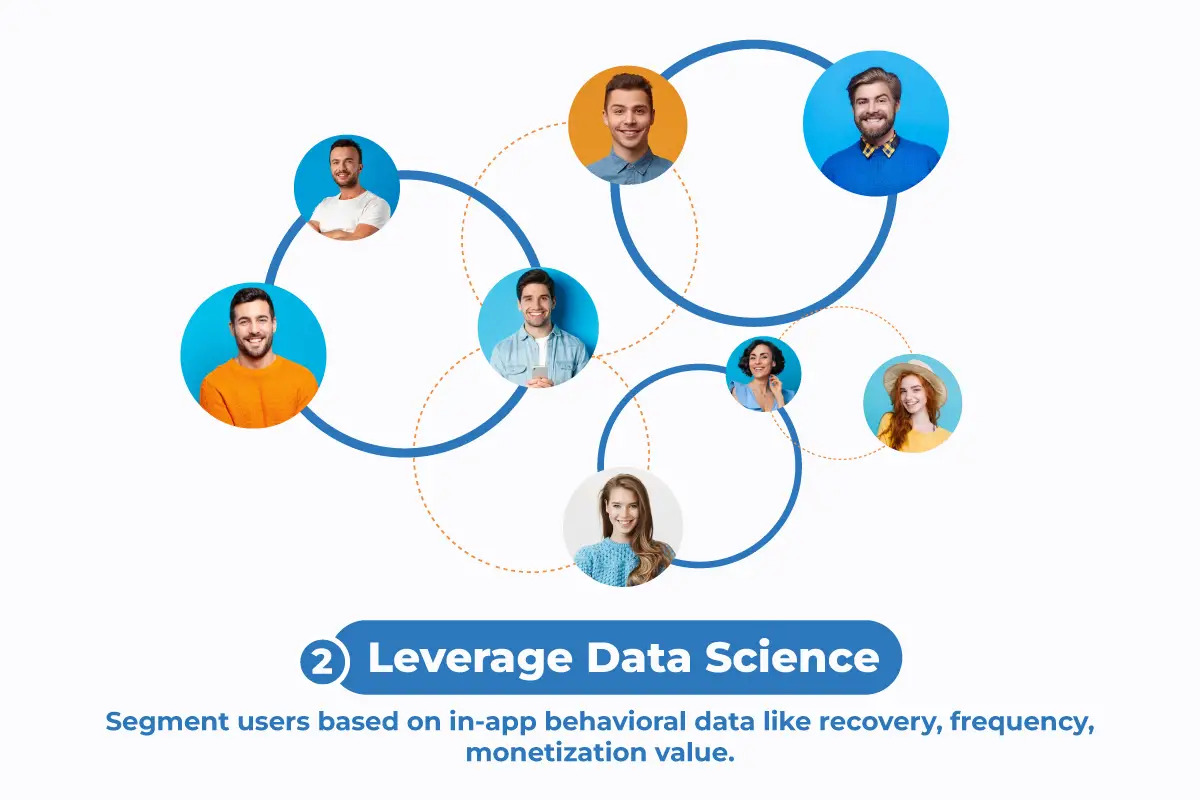
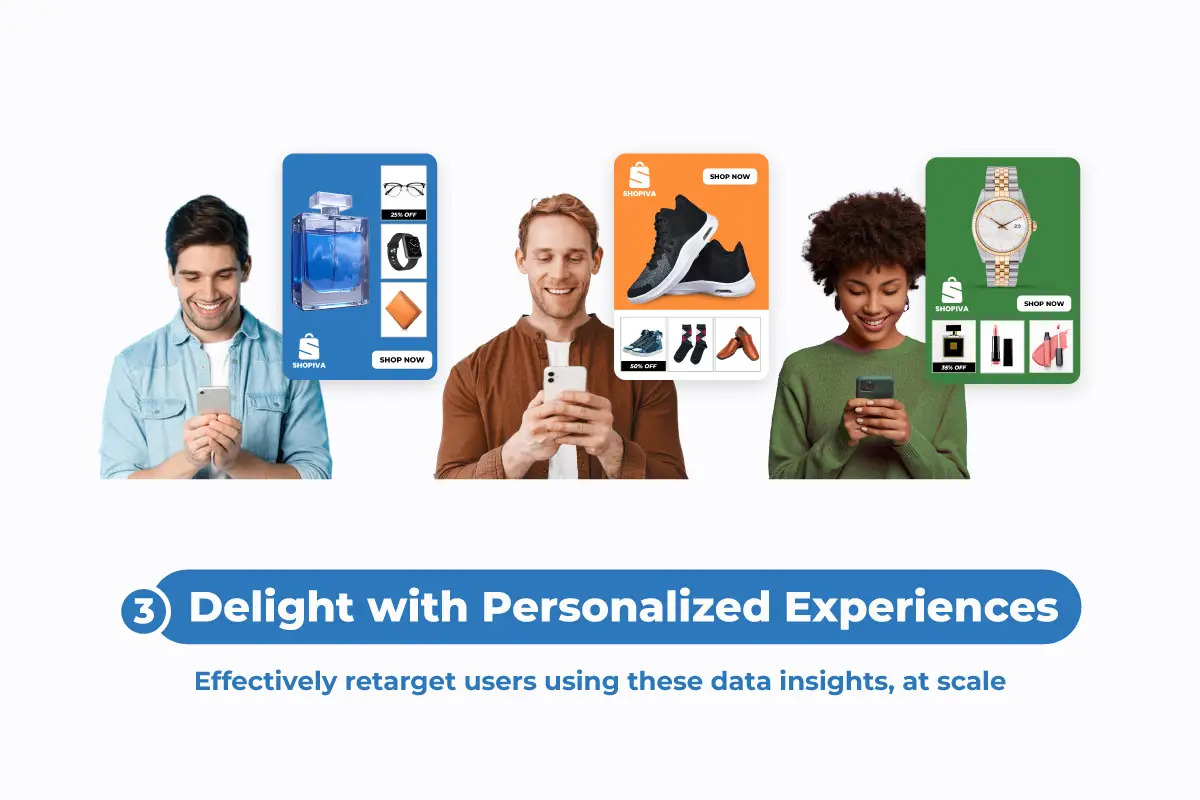
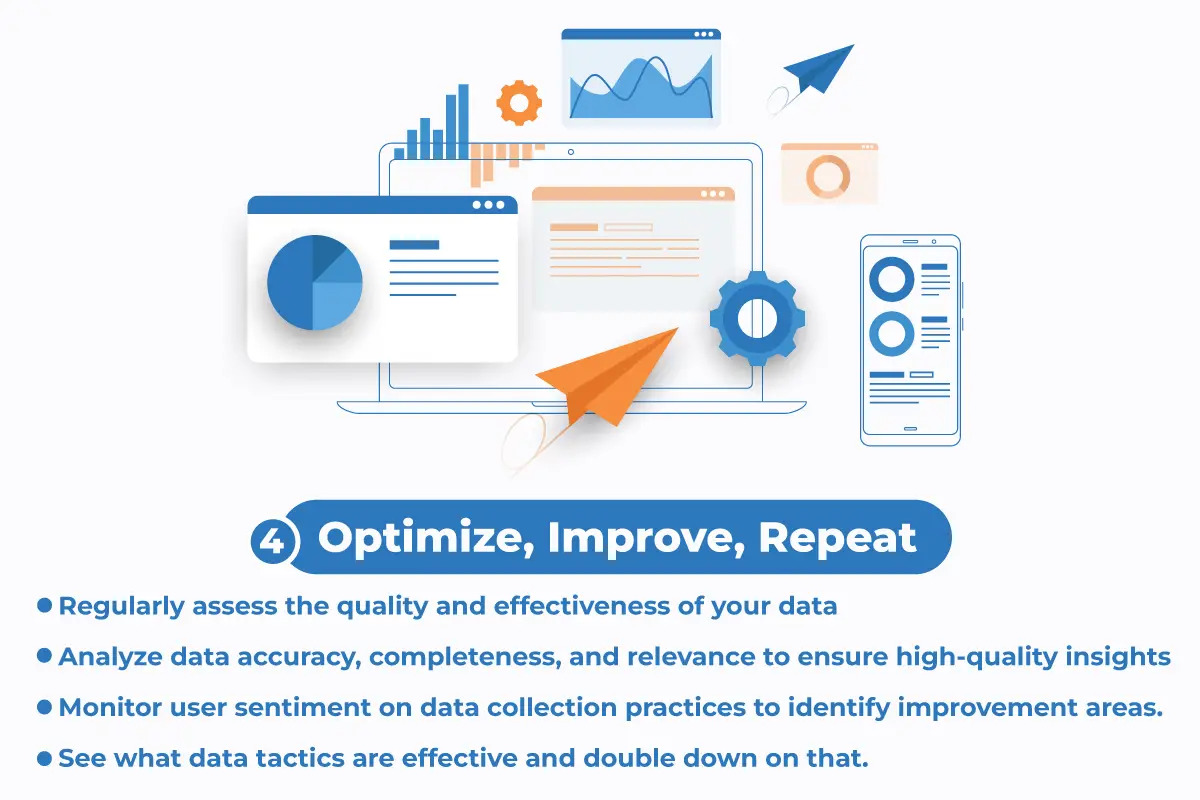
In Closing
As an industry, we are seeing a profound shift towards ethical and responsible advertising that places privacy and mutual value above all else. It’s time to view privacy changes not as obstacles, but as a gateway to innovation: a fresh perspective on delivering meaningful experiences to users!



